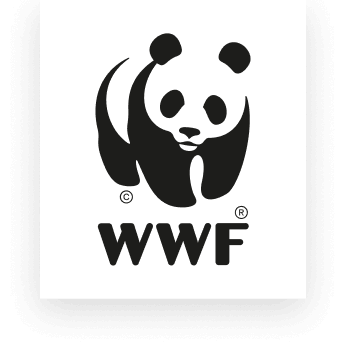September 3, 2019
Written By: Dante Wong, Corporate Reponsibility Intern, RSA Canada
Looking back on #PlasticFreeJuly, this past month has prompted me to think more about our collective impact on the planet.
Globally, 60% of species are in decline. Even more worryingly, the rate of decline in Canada is more than double the global average. Climate change is one of the biggest threats to biodiversity, and it will become an even greater threat in the coming years. The need to fight climate change and to restore biodiversity is greater now than it ever has been. All life is inextricably linked to the health of this planet, and in that sense, businesses are no different.
So what role should companies take in protecting the environment?
This is the question I was asking myself when I joined as a corporate responsibility intern with RSA, a leading insurance company in Canada and globally. Through this position, I have been working closely with the team at WWF-Canada, one of RSA’s corporate responsibility partners, and have had the opportunity to see how both organizations operate.
I’ve seen how impactful it can be for a company to live their corporate responsibility values and how that translates into its policies, partnerships and actions. When done right, corporate responsibility goes beyond a simple charitable donation and is about aligning a company’s business model and its responsibility to the planet. This point is best illustrated in WWF’s recently released “Our Business” film, which shows how businesses can be a force for change and find innovative, sustainable solutions.
This past June, I witnessed this alignment of business and responsibility firsthand, when I helped coordinate a series of nation-wide shoreline cleanups for RSA employees, with the support of WWF-Canada. It was inspiring to see the enthusiasm of RSA’s employees, with a record-breaking 372 volunteers participating at nine sites across Canada. Together, we picked up 586kg of waste – the majority of which was made up of plastic items. The passion of these employees was palpable; these are people who genuinely care about creating a healthier planet and want to do their part.
In the three years that RSA has been hosting these annual shoreline cleanups, we have continuously evolved based on lessons learned to make the greatest positive impact.Last year, we received feedback that the parks were “too clean” because they lacked the large, obvious garbage such as tires, mattresses and bicycles. This year, we put particular emphasis on small plastic debris, which are very often overlooked. While small in size, microplastics are some of the most harmful and toxic forms of litter that species ingest or get entangled in, and which most easily end up in the water systems that we humans rely on. It was incredibly encouraging to see the volunteers embrace this change and gain a greater appreciation for the impact that microplastics can have on the environment.

This cleanup initiative is a direct result of the strong partnership that RSA has built with WWF-Canada over the last decade. The open communication and knowledge sharing between the two organizations has helped RSA develop programs that focus on meaningful solutions.
I’m incredibly proud that I was a part of this program and of what we achieved. When it comes to the environment, RSA’s direction is clear. We all rely on a healthy planet, and I’ve seen how business can do its part to maintain a healthy planet. It’s fair and it’s responsible.


